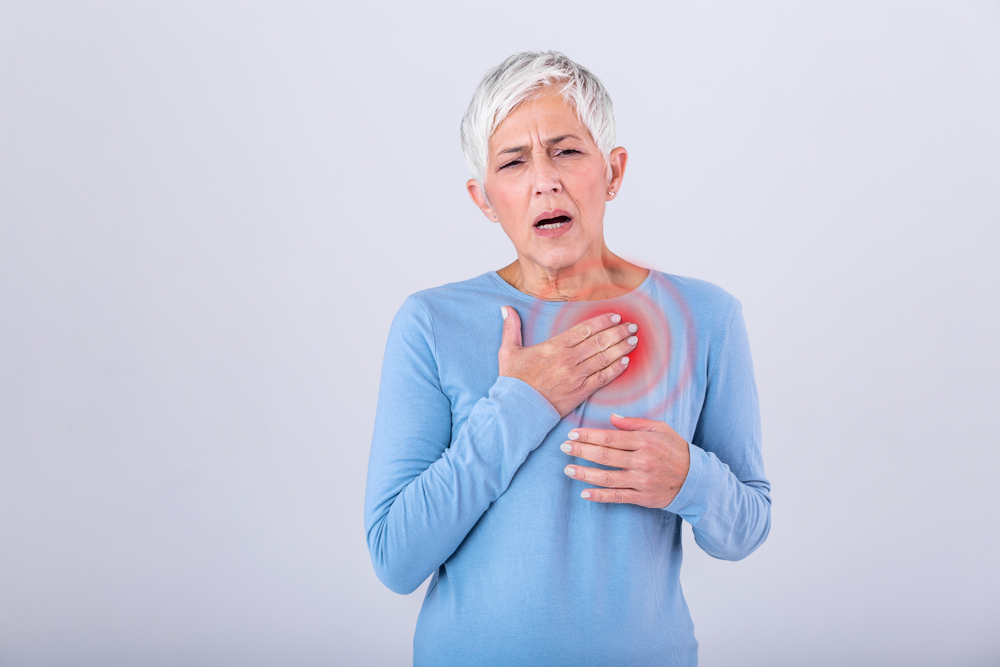Last Updated:
August 4th, 2025
Heart Issues Caused by Addiction
Noticing strange feelings in your chest can be frightening, especially when they don’t go away. Your heart does a lot of heavy lifting, but when you are using drugs or alcohol heavily, it can come under enormous strain. Heart issues are a common but potentially dangerous symptom of addiction, which are often ignored or underestimated. This can be a huge risk to take, as issues like arrhythmia, increased heart rate, and heart palpitations can be precursors to an alcohol or drug heart attack. Knowing how drug and alcohol addiction affects your heart can ensure you get the right help if you experience any worrying heart issues.
What is meant by “heart issues”?
“Heart issues” is a broad term, but it simply means your heart isn’t functioning as well as it should. Your heart pumps blood around your body, carrying oxygen and nutrients to your organs. When something interferes with this process, like drugs or alcohol, it can lead to serious symptoms and complications.
You might notice symptoms like chest pain, a pounding or fluttering heartbeat (heart palpitations), dizziness, or feeling unusually tired or short of breath. These symptoms occur when your heart is under strain and may signal conditions like high blood pressure, arrhythmia (irregular heartbeat) or even damage to the heart muscle itself.
These heart issues don’t always feel dramatic, but taking them seriously is important, whether the changes are sudden or creeping in over time. Alcohol and drug addiction can take an enormous toll on your heart, and ignoring the signs could lead to lasting and even fatal damage.
How can addiction lead to heart issues?
Many substances have a direct effect on your heart, and it’s one of the first organs to suffer when addiction takes hold. Stimulants such as cocaine, meth and some ADHD medicines can send your heart rate through the roof. This can sometimes lead to arrhythmia or even a drug-induced heart attack. These risks increase with prolonged, excessive use, but even misusing stimulants once can be potentially dangerous.
Alcohol might seem slower in its effects, but it can quietly damage your heart over time. Long-term alcohol misuse weakens your heart muscle, disrupts its normal rhythms and increases your risk of stroke and high blood pressure.
Opioids like heroin or prescription painkillers can slow your heart down dangerously, especially in high doses or when combined with other depressants. This can lead to fainting, low oxygen levels and, in extreme cases, a complete and fatal shutdown of the heart.
Even prescription drugs like benzodiazepines can affect your heart when taken in large amounts or mixed with other substances. As with opioids, these can slow your breathing and heart rate to unsafe levels, potentially leading to brain damage or even death.
No matter the substance, addiction and the heart are closely connected, so if you’re experiencing chest discomfort, unusual fatigue or any other heart issues, you should seriously consider professional rehab treatment.
Struggling with an addiction? If you are ready to seek help, reach out to us today, and a member of our compassionate team will help you find the best option for starting your recovery journey.
What are some common heart issues to look out for?
Substance use can trigger a range of physical symptoms, but the ones related to your heart are some of the most serious. Here are some of the most common heart issues which you need to take very seriously:
Increased heart rate
Your heart can start pounding after using substances like MDMA, cocaine and methamphetamine and also during withdrawal from various substances. This can make you feel jittery, dizzy or anxious and can be a sign that your heart is being overstrained.
Heart attacks
Long-term substance abuse, particularly with cocaine, alcohol or synthetic opioids, can narrow or block your blood vessels. This massively increases your risk of a heart attack, especially during substance use or withdrawal when your body is under intense stress.
Arrhythmia
Some substances confuse the electrical system that keeps your heart beating steadily. Drugs like meth, cocaine, ecstasy and certain prescription medications make your heart beat too fast, too slow or completely out of rhythm, all of which can be very dangerous.
Heart palpitations
When you feel your heart fluttering or skipping beats, especially after drinking or during withdrawal, it’s called heart palpitations. They may pass quickly, but if this happens frequently or feels severe, you need to examine it.
What else can cause heart issues?
As well as drug and alcohol abuse, various other factors can affect your heart health. Underlying medical conditions like high blood pressure, diabetes, or thyroid disorders can all strain the heart over time, while lifestyle factors like poor diet, lack of exercise, smoking or high stress levels can also weaken your heart or trigger irregularities in how it functions.
In some cases, heart issues may result from a combination of substance use and other health concerns, which can make these symptoms even more dangerous. For example, someone with untreated high blood pressure who is also using stimulants like cocaine is at a much higher risk of a heart attack. This is why it’s so important to look at the full picture when addressing heart-related symptoms and not dismiss them as just stress or normal aches and twinges.
What are the dangers of ignoring heart issues?
A lot of people living with addiction explain away chest discomfort or racing heartbeats as just stress, poor sleep or another rough come-down. It is often easier to pretend it’s normal than to face the fear that something deeper might be wrong.
But ignoring heart issues is a very dangerous thing to do because they can quickly become life-threatening. Stimulants like cocaine and meth are known to trigger sudden heart attacks, even in young, otherwise healthy people.
Alcohol may seem safer because it’s legal, but ignoring heart issues means alcohol’s progressive damage to your heart goes unchecked. This can lead to long-term conditions like cardiomyopathy, dangerously increased blood pressure and a high risk of strokes.
As explained above, opioids and sedatives can dangerously slow your heart rate, increasing the risk of oxygen loss and fatal overdose. All of these effects put enormous strain on your body, and all can be missed if you’re used to powering through symptoms.
The longer you ignore these signs, the harder it is to repair the damage later. When addiction and heart health problems collide, outcomes are often severe, but they’re not inevitable. Spotting the signs early and taking action can give your heart the best chance of healing.
What should I do if I notice these heart issues in myself or a loved one?
Your heart works hard for you every day, but if it’s under pressure from drugs or alcohol, it may be struggling more than you realise. Don’t wait for the warning signs to turn into something more serious. Whether you’re worried about yourself or someone you care about, Addiction Helper is here to listen and guide you toward the right support. One call could be the first step in protecting your health and starting your recovery.
Our compassionate team are ready and available to take your call, and guide you towards lasting the lasting addiction recovery you deserve.



